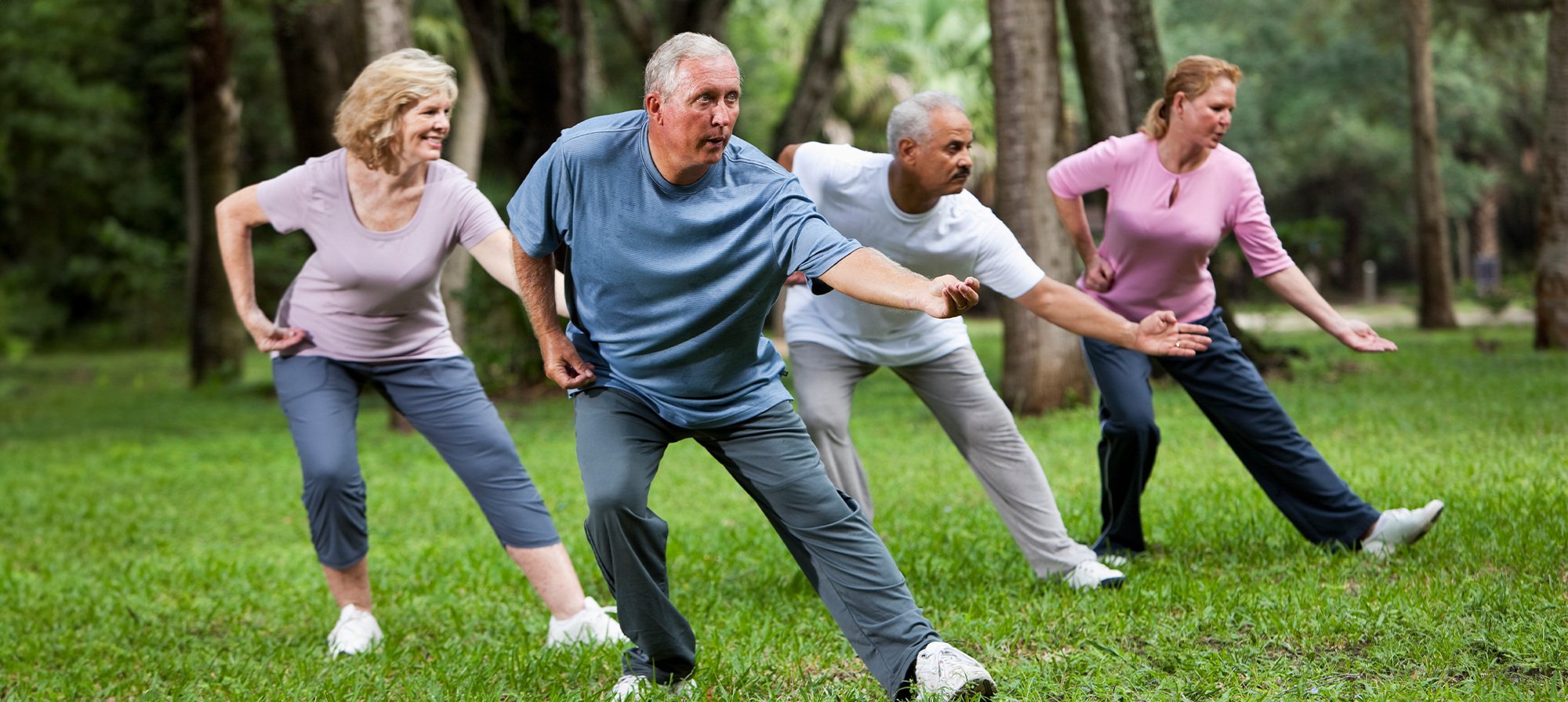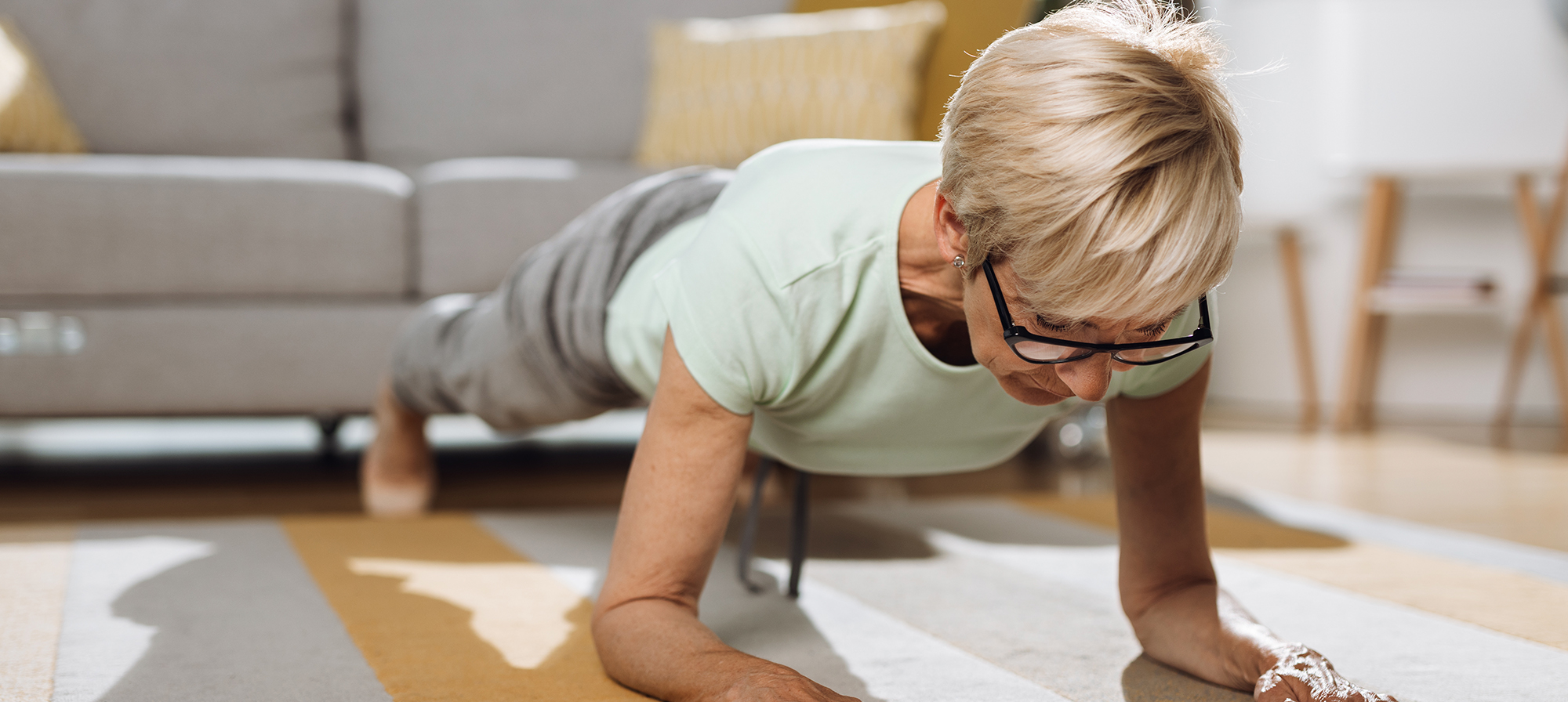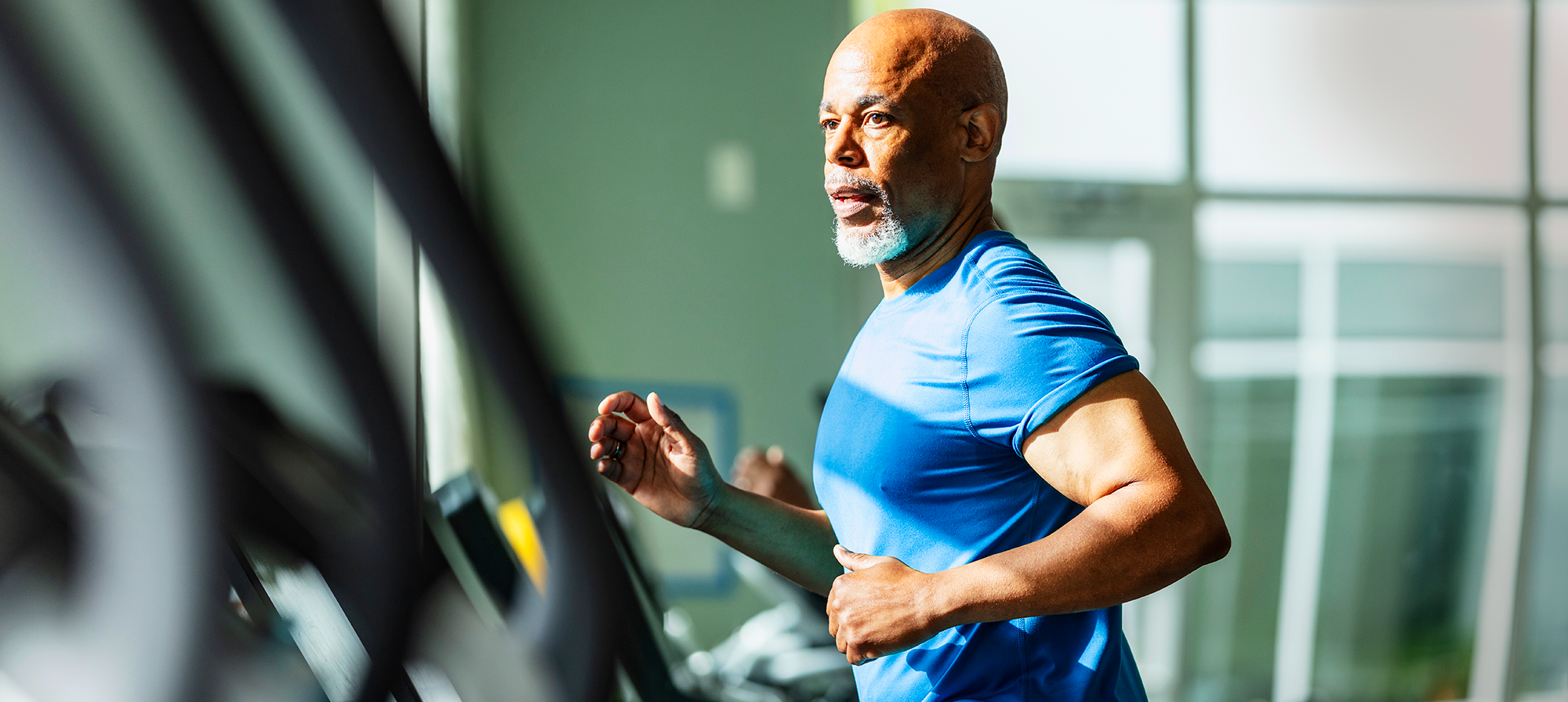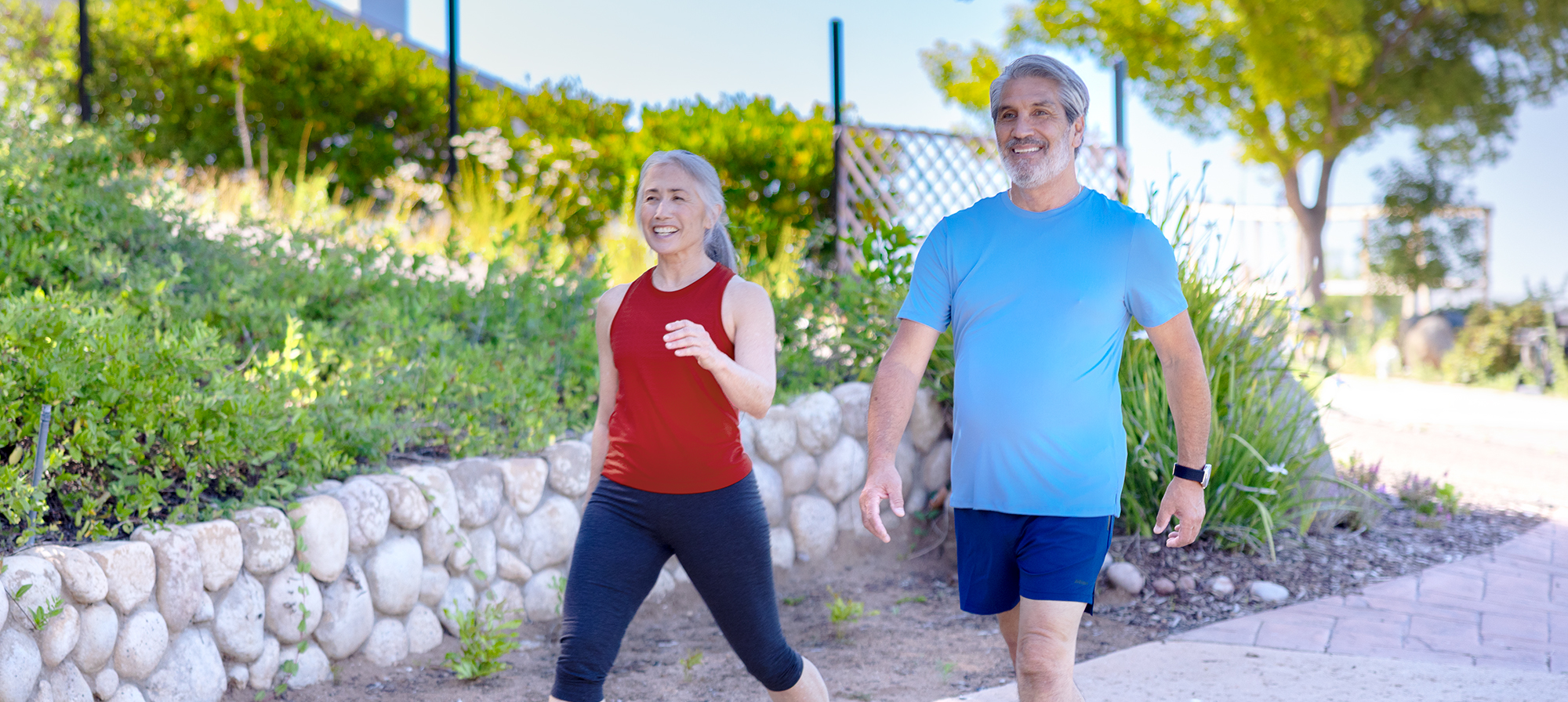The benefits of tai chi include lowering stress, improving physical function and balance, and reducing fall risk. But did you know it can also support your brain health?
The benefits of tai chi are no secret. Ancient practices and modern-day research suggest that following a tai chi routine can help lower the risk of many health problems. It can also help people better manage health issues they already have. One other, perhaps lesser-known, benefit of tai chi: it may support brain health and help maintain better cognitive functioning as you age.
What’s the link between tai chi and brain health?
While any physical activity can aid brain health, tai chi may be even more supportive than other forms of exercise. Science is looking into the physiological reasons behind these brain boosts.
Some experts point to the mindfulness component of tai chi. You engage your mind when you concentrate on the different movements and how to flow from one to another. You work your brain to an extent you don’t need to when, say, you are simply walking, running on a treadmill, or riding a bicycle. Tai chi is less automatic and therefore, requires more brain engagement as you move. This brain-body connection as you move boosts brain health.
While researchers continue to study brain structure, it is clear that tai chi can benefit your brain health.
 5 ways tai chi can benefit your brain
5 ways tai chi can benefit your brain
Your brain can change in positive ways as you age. Contrary to earlier beliefs, recent evidence suggests that the brain may grow new cells. It can make new connections. One way to make this happen is to exercise. A good choice for a workout at any level of fitness is tai chi.
Tai chi been shown to benefit brain health in many ways. Tai chi can:
- Boost memory
- Help with spatial understanding
- Improve language skills
- Aid in ability to make decisions
- Sharpen attention
Improvements due to tai chi are possible even if mild cognitive impairment has already started. And if you are functioning at a normal cognitive level, tai chi can help protect against common cognitive issues such as memory loss.
Are you interested in reaping the health benefits of tai chi? If so, think about adding it to your wellness routine. Let’s take a closer look at tai chi and how to get started.

What exactly is tai chi?
Tai chi is a form of mind-body exercise derived from Chinese martial arts. It is thought to enhance the flow of qi (life force) throughout the body. Tai chi is known as moving meditation, using gentle movements and postures that create harmony between the mind and body.
The slow, graceful motions reflect the movements of animals. These movements are really a series of poses that flow from one into another. Sets of movements are called “forms.” A short form can have 12 or less movements. Long forms can have as many as 100 or more.
The deliberate, flowing motions of tai chi make for a low-impact workout that is easy on joints, muscles, and connective tissues. With each movement, you breathe deeply and turn your thoughts to what your body is feeling.

Who can learn to practice tai chi?
Tai chi is great for all ages and suited for those who have health issues, and for those who do not! Because tai chi is a low-impact way to exercise, it puts less stress on muscles and joints. If you’re an older adult who may be reluctant to start a more strenuous fitness program, tai chi may be the answer.
One of the benefits of tai chi is that it costs nothing and doesn’t call for any special equipment. It can be done anywhere, indoors or outside. And you can practice tai chi alone in your home from a video or in a class with others.

Tai chi benefits the body and mind in many other ways
Tai chi does more than just support your brain health. Tai chi’s gentle movements help calm the mind and relax the body. In fact, many people who do tai chi say they feel more focused and like they have more energy. Moving mindfully also promotes stress reduction. Tai chi can help ease worry and depression. Some studies even suggest that tai chi may help you sleep better.
Tai chi may also help lower blood pressure, build up your immune system, and aid the health of your heart and lungs.
Plus, tai chi is a great way to move and exercise. Staying mobile with tai chi can support muscle function and improve your balance, flexibility, and coordination. It also helps engage your core, which supports the whole body. And last, but not least, there’s the all-important aspect of brain health.

Stepping up your tai chi workout
To protect your brain health even more, you can practice cognitively enhanced tai chi. This is when extra challenges are added to the usual form progressions. During these sessions, you may be asked to spell words as you move. Or you may be asked to spell words backwards. This more intense engagement of the mind during physical activity can enhance brain health even more.
So, take advantage of the many benefits of tai chi. You may notice that you feel less stressed. You may start to sleep better and balance with more ease. Your joints may move more freely and with less pain. And even though you can’t see it happening, tai chi may be boosting your brain health in a range of ways. Sign up for a local class and get started living a more balanced life today!
Not a Silver&Fit® member? Learn more about everything the program has to offer, including more helpful healthy living tips like this, here on our website.
This information is not intended to take the place of regular medical care or advice. Please check with your doctor before using this information or beginning any self-care program. Images used for this article do not depict any members of the Silver&Fit Program.
References
Chen Y, Qin J, Tao L. Effects of Tai Chi Chuan on cognitive function in adults 60 years or older with type 2 diabetes and mild cognitive impairment in China: A randomized clinical trial. (2023, April 6). JAMA Network Open. 6(4), e237004. doi:10.1001/jamanetworkopen.2023.7004. https://jamanetwork.com/journals/jamanetworkopen/fullarticle/2803247
Chen, W., Li, M., Li, H., Lin, Y., & Feng, Z. (2023). Tai Chi for fall prevention and balance improvement in older adults: a systematic review and meta-analysis of randomized controlled trials. Frontiers in public health, 11, 1236050. https://doi.org/10.3389/fpubh.2023.1236050
Dumas J. A. (2017). Strategies for preventing cognitive decline in healthy older adults. Canadian Journal of Psychiatry. RevuecCanadienne de Psychiatrie, 62(11), 754–760. https://doi.org/10.1177/0706743717720691
Harvard Medical School. (2024, January 31). A sharper mind: Tai chi can improve cognitive function.
https://www.health.harvard.edu/mind-and-mood/a-sharper-mind-tai-chi-can-improve-cognitive-function
Harvard Publishing. (2022, May 24). The health benefits of tai chi. https://www.health.harvard.edu/staying-healthy/the-health-benefits-of-tai-chi
Kennedy, G., Hardman, R. J., Macpherson, H., Scholey, A. B., & Pipingas, A. (2017). How does exercise reduce the rate of age-associated aognitive decline? A Review of Potential Mechanisms. Journal of Alzheimer's disease : JAD, 55(1), 1–18. https://doi.org/10.3233/JAD-160665
Li, F., Harmer, P., Eckstrom, E., Fitzgerald, K., & Winters-Stone, K. (2023, November). Clinical effectiveness of cognitively enhanced Tai Ji Quan training on global cognition and dual-task performance during walking in older adults with mild cognitive impairment or self-reported memory concerns: A randomized controlled trial. Annals of Internal Medicine, 176(11), 1498–1507. https://doi.org/10.7326/M23-1603
Lim, K. H., Pysklywec, A., Plante, M., & Demers, L. (2019). The effectiveness of Tai Chi for short-term cognitive function improvement in the early stages of dementia in the elderly: A systematic literature review. Clinical interventions in Aging, 14, 827–839.
Lomas-Vega, R., Obrero-Gaitan, E., Molina-Ortega, F. J., & Del-Pino-Casado, R. (2017). Tai chi for risk of falls. A meta-analysis. Journal of the American Geriatrics Society, 65(9), 2037-2043. doi: 10.1111/jgs.15008
Lyu, D., Lyu, X., Zhang, Y., Ren, Y., Yang, F., Zhou, L., Zou, Y., & Li, Z. (2018). Tai Chi for stroke rehabilitation: A systematic review and meta-analysis of randomized controlled trials. Frontiers in Physiology, 9, 983. https://doi.org/10.3389/fphys.2018.00983
Mayo Cinic. (2018, October 3). Mayo mindfulness: Tai chi is a gentle way to fight stress. https://newsnetwork.mayoclinic.org/discussion/mayo-mindfulness-tai-chi-is-a-gentle-way-to-fight-stress/
National Center for Integrative and Complementary Health. (2023, November). Tai chi: What you need to know. https://www.nccih.nih.gov/health/tai-chi-what-you-need-to-know
Park, M., Song, R., Ju, K., Seo, J., Fan, X., Ryu, A., Li, Y., & Jang, T. (2022). Effects of Tai Chi and Qigong on the mobility of stroke survivors: A systematic review and meta-analysis of randomized trials. PloS One, 17(11), e0277541. https://doi.org/10.1371/journal.pone.0277541
Park, M., Song, R., Ju, K., Shin, J. C., Seo, J., Fan, X., Gao, X., Ryu, A., & Li, Y. (2023). Effects of Tai Chi and Qigong on cognitive and physical functions in older adults: systematic review, meta-analysis, and meta-regression of randomized clinical trials. BMC Geriatrics, 23(1), 352. https://doi.org/10.1186/s12877-023-04070-2
Stress.org. (2023, January 11). Tai chi for stress relief that you can try – at home. https://www.stress.org/news/tai-chi-for-stress-relief-that-can-you-try-at-home/
Zhao, J., Pak Chun Chau, J., Wai Kiu Chan, A., Meng, Q., Chow Choi, K., Xiang, X., Zhao, Y., He, R., Li, Q. Tailored sitting Tai Chi program for subacute stroke survivors: A randomized controlled trial. (2022, July). Stroke. 53(7).
This article was written by Sharon Odegaard, edited by Celina Johnson, and clinically reviewed by Jaynie Bjornaraa, PhD, MPH, PT, SCS, ATC, CSCS, on April 2, 2024.





